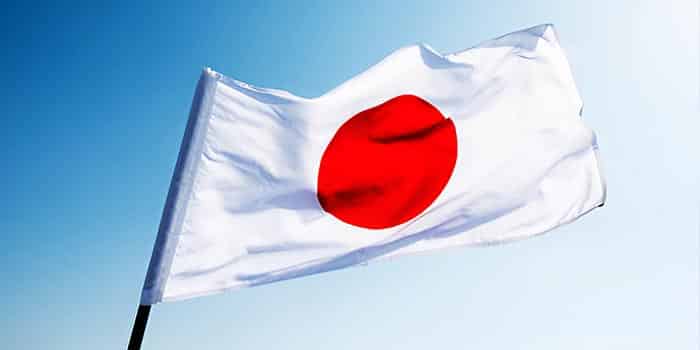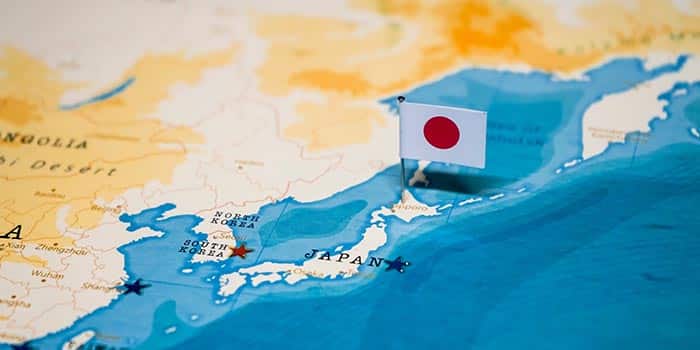- Casino
- By State
- Alabama
- Alaska
- Arizona
- Arkansas
- California
- Colorado
- Connecticut
- Delaware
- Georgia
- Florida
- Hawaii
- Idaho
- Illinois
- Indiana
- Iowa
- Kansas
- Kentucky
- Louisiana
- Maine
- Massachusetts
- Maryland
- Michigan
- Minnesota
- Mississippi
- Missouri
- Montana
- Nebraska
- Nevada
- New Hampshire
- New Jersey
- New Mexico
- New York
- North Carolina
- North Dakota
- Ohio
- Oklahoma
- Oregon
- Pennsylvania
- Rhode Island
- South Carolina
- South Dakota
- Tennessee
- Texas
- Utah
- Vermont
- Virginia
- Washington
- West Virginia
- Wisconsin
- Wyoming
- By State
- Slots
- Poker
- Sports
- Esports
Miki Shimoji Latest Japanese Official to Face Consequences of IR Influence-Peddling

The latest of a series of events surrounding the ongoing bribery scandal in Japan, that had started in late December around a casino resort opening project, has to do with a relatively small party: Nippon Ishin no Kai.
This political minnow has opted to expel their House of Representatives member Mikio Shimoji, instead of accepting his resignation, thus taking a firm stand against such political practices while maintaining their position on the matter of casino resorts.
The Spark to the Powder Keg
Everything started on Christmas Day 2019 when LDP Representative and former Senior Vice Minister at the Cabinet Office Tsukasa Akimoto was arrested over allegations that he had accepted illegal payoffs by Chinese sports lottery provider and Nasdaq traded company 500.com, in an attempt to boost their bid for building an integrated casino resort in Hokkaido Province.
Mr. Akimoto was a key figure in shaping Japan’s policy at that time, serving in the state minister position from August through September 2017, with the integrated resort implementation law enacted a year later.
The Political Playground
One of the ideas of the Fourth Abe Coalition Cabinet, seeking to revitalize Japan’s economy by expanding the role of foreign tourism through building several casino resorts around the country, had consistently faced public skepticism.
The general perception of it was that opening up to international casino giant operators would only result in domestic money flowing out of the country while bringing more social problems and the current bribery allegations towards ex-members of the ruling Liberal Democratic Party represent a significant political blow, fueling the firm stance of the opposition that allowing such a sell-off of the country interests is akin to treason. No doubt, members of the Constitutional Democratic Party would jump at the occasion to prove their point and further dent Abe’s ruling coalition plans.
On the geopolitical front, this bribery scandal comes out at a moment when both China and Japan are working behind the scenes to craft a major political document that will lay the foundation for the two countries’ future relations. The document is scheduled to be revealed during Chinese President Xi Jinping’s official visit to Japan in spring – a development that is not favored by Japan’s trading partner on the other side of the Pacific who is entangled in an ongoing trade war with China.
The Perpetrator
500.com is a company that started operating back in 2001 as a gambling website. With time, the ambitions of its owner, Man San Law, led to its listing on the New York Stock Exchange (NYSE) in 2013, followed by his resignation as CEO two years later.
This event coincided with the first loss reports due to the significant blow to the company dealt by the decision of the Chinese Government to suspend a pilot project regarding online lottery as a report by the country’s top auditor found out more than $2.8bln embezzled by corrupt officials.
Previously, 500.com was one of two government-approved companies, along with China SMG network, to deal with the project, as a result of which significant state-owned capital started flowing into the company through the Tsinghua Unigroup, which now owns 34% of Shenzhen-based 500.com.
Since the suspension of online lottery sales in 2015, 500.com has never fully recovered financially, despite their attempts to diversify business through the acquisition of The Multi Group Ltd, the Malta-headquartered parent of Multilotto, as well as investing in physical lottery sales units throughout the China provinces.
Another interesting fact around the company is their proposition last year to implement blockchain technology as a solution to the problem with fraud in online lottery sales, which by chance happened just two weeks after the official endorsement by the Chinese Government of blockchain technology as a tool “to increase China’s influence and rule-making power in the global arena”, and though 500.com’s statement that their research in the area dated back to 2015, the timing of the announcement further fueled suspicion.
Putting All the Pieces Together
The Japanese political scandal looks like being only the tip of the iceberg shown to the public the same way an illusionist focuses the public attention in one direction while the most important part of the illusion is happening somewhere else.
Being financed by Chinese state-owned capital and being shot at the ruling Japanese political coalition, makes 500.com the perfect messenger to both China and Japan that obviously someone is not happy with the recent political developments and is ready to take more serious countermeasures.
Besides possibly striking a discord in the China-Japan bilateral relations, the use of Chinese finances to bribe Japanese politicians sends loud and clear messages to both country’s administrations: to China to drop their ambitions to enter the realm of blockchain technology and back down in the trade negotiations, to Japan to choose a side in the ongoing Trade War.
Whether this is the case with the ongoing bribery casino scandal in Japan only time will tell.
Simon is a freelance writer who specializes in gambling news and has been an author in the poker/casino scene for 10+ years. He brings valuable knowledge to the team and a different perspective, especially as a casual casino player.
Previous Article

Casino
January 11, 2020
Parx Casino to Introduce Evolution Live Games on iGaming Sites

Must Read
Casino
July 15, 2025
Uno Is Coming for Casinos in the United States
More Articles






Casino
June 26, 2025
Japan Signals New Expansion Phase for Casino Resorts

Casino
June 18, 2025
Japan Bans Online Casino Ads Targeting Local Users

Casino
June 6, 2025
Japan Arrests 9 People Tied to $629M Gambling Ring

Industry
June 3, 2025
Japan Moves to Ban Online Casino Sites

Casino
April 24, 2025
MGM Osaka Held Its Groundbreaking Ceremony





